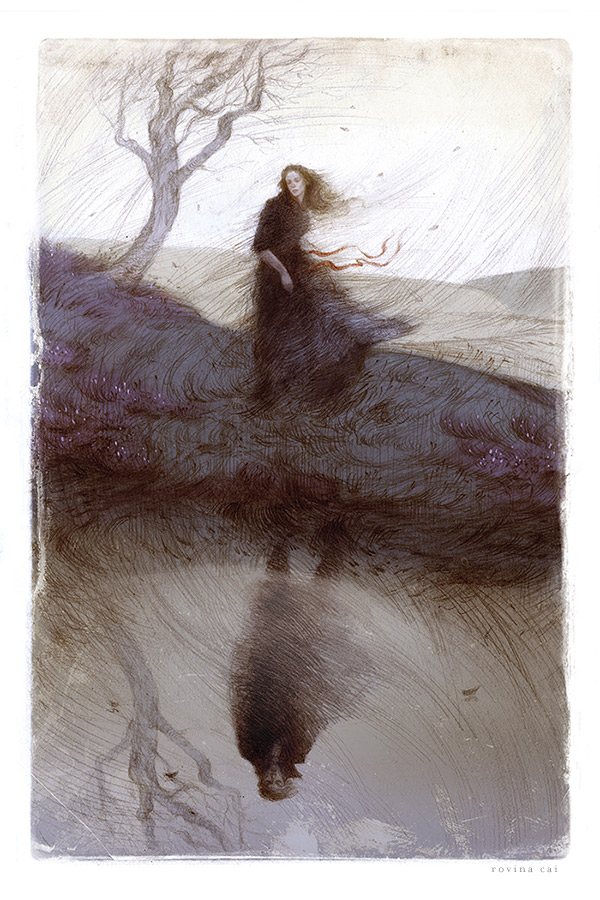So I’m going to use this opportunity in my blog post to perhaps make a connection to some outside of class research I’ve done (but don’t worry, it’s not completely tangential). Recently in my History of European Revolutions class, we’ve been discussing the Romantic Revolution and I’ve found it very useful in understanding the literary context of Wuthering Heights. When people express frustration at the lack of rational decision making and extremely dramatic, emotional characters, it’s important to realize that European art as a whole was undergoing deep structural change. The Romantic Revolution is more like a counter-revolution (at least in my eyes), where many artists expressed growing disillusionment with the purely rational ideas of the Enlightenment. The new scientific and mathematical discoveries may have “illuminated” the people of the world, but to many of those with more romantic dreams, these cold truths were not very comforting. As the author of The Romantic Revolution claims, “A universe in which God had been demoted to the role of primal clock maker seemed to be a chilly place,” (Blanning 170). Artists wanted some catharsis, they wanted mystery, they wanted romance, they wanted to feel. Heathcliff is the perfect example of a Romantic hero, not because he actually performs heroic deeds, but because his actions were deeply founded on whatever emotions he felt at the time. He feels anger, and decides to completely ruin Hindley’s life; he feels love, and is obsessed with Catherine for the rest of his life. The Romantic-era authors idealized characters like Heathcliff because they were “true” to themselves, and the whole tragic end/doomed romance of his character serves as the ultimate cherry on top of his moody sundae. I can go further into discussing how the Romantic Revolution relates to Wuthering Heights but I’ll refrain from doing so. This was mostly me testing the waters with a brief exploration of Emily Bronte’s literary contemporaries. Dr. Schacht can feel free to slap my wrist for going a bit against our goals

“I have to remind myself to breathe — almost to remind my heart to beat!”: The Lovable Drama of the Romantic Revolution
Leave a reply
